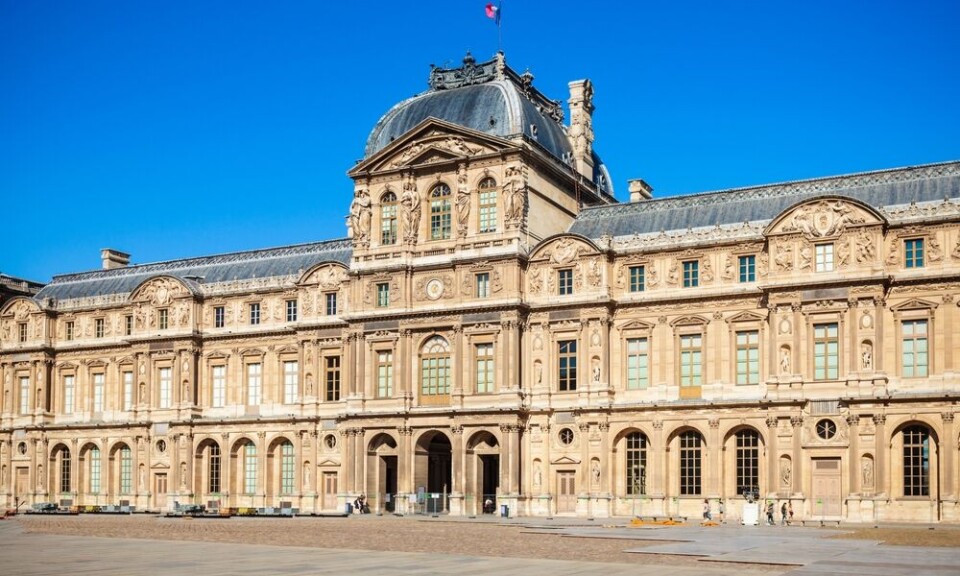-
GR, GRP, PR: What do the French hiking signs mean?
What are the coloured symbols on French hiking routes? Who paints them there and why?
-
Miss France: glam - but not sexy
Miss France organiser Geneviève de Fontenay fears she is fighting a losing battle to protect her 'Cinderella dream' from vulgarity
-
Normandy Landings visit for Queen
Queen Elizabeth has confirmed a state visit to France, ending rumours she is handing over duties to Charles
Uniting Calais' Anglican expats
The new Anglican priest in the Pas-de-Calais, Sara McVane, on the challenges ahead
THE ANGLICAN church in the Pas-de-Calais has its first female priest, Reverend Sara McVane, who has moved to the region after 40 years in Rome.
She talks to The Connexion about what the role involves and how to bring together a dispersed English-speaking community
How did you come to be a minister?
I was born in London to American parents and I grew up in New York. My parents met in Spain, my mother had grown-up partly in Switzerland and my father studied at Oxford, so they had a sort of gypsy wanderlust.
I followed suit and went to Greece for a doctoral year and then to Italy where quite unexpectedly I lived for 40 years. I taught English, Latin and history in an American Catholic school in Rome, then I taught in the economics department of an Italian university and for several years I was chief translator at the Bank of Italy clearing house.
During my last 10 years in Rome I attended the Church of England more frequently and when a position came up for pastoral and administrative assistant I applied and got the job. I studied theology just for the heck of it, and the suffragan bishop suggested that I consider ordination, which I eventually did.
When the position in Pas-de-Calais was suggested, different bits of my life seemed to be coming together. My daughter Lucy lives in Paris with her companion Ben, a French artist, and three days after my arrival in Saint-Omer, Giuliano, my first grandchild, was born.
What brought you here?
I left a city I know like the back of my hand, where I have many long-standing friends, colleagues, and work contacts, to come to a place I had never been and knew no one. I felt somewhat anxious, but above all curious about what God thought he was doing with me.
I have found a lot of goodwill and support. I have learned to appreciate the wide expanse of sky, the beauty of the windmills whirling around, the rapid changes of weather, and the stars in the dark night sky.
When I saw the white cliffs of Dover very visible just across a narrow line of sea, the historical connection between this part of France and Britain suddenly made sense.
The parish is very large but is quite sparsely populated by English-speakers. How do you plan to bring them together?
I would like to see the chaplaincy grow in fellowship and see more people in church.
There are many English speakers in the Pas-de-Calais who would like to know more about the church, but who don’t know how to go about it. One way to encourage people to find out more is to plan activities which bring people together outside of church services.
There are already activities like that in the Pas-de-Calais, but it is also important that the churches organise occasional events.
We should visit each other’s events and activities and make the effort to support and encourage the activities which are already in place.
How do you plan to work with other local religious groups – in particular the Catholic Church?
I feel that I already have some solid if initial contacts with the Catholic Church in the area.
We had a very well attended ecumenical service in Boulogne to which Catholic clergy and lay people came.
There was a very good turnout of Catholic clergy for my installation. I have a personal connection with the French Reform Church because I have been a one-month summer chaplain for four summers in Etretat in Haute-Normandie (they are pretty tolerant there of my very mediocre French) and then there is a small ecumenical group in Saint-Omer.
The church is under financial strain – what can be done to improve that?
We do need to work on special events not only to raise funds but also to make our presence known and to encourage people who are shy of the church to give us a try.
To find out more about the Anglican Church in the Pas-de-Calais, call Sara McVane on 09 50 87 37 01, email chaplain62@free.fr or see http://anglchurch.free.fr/boulogne.htm






















